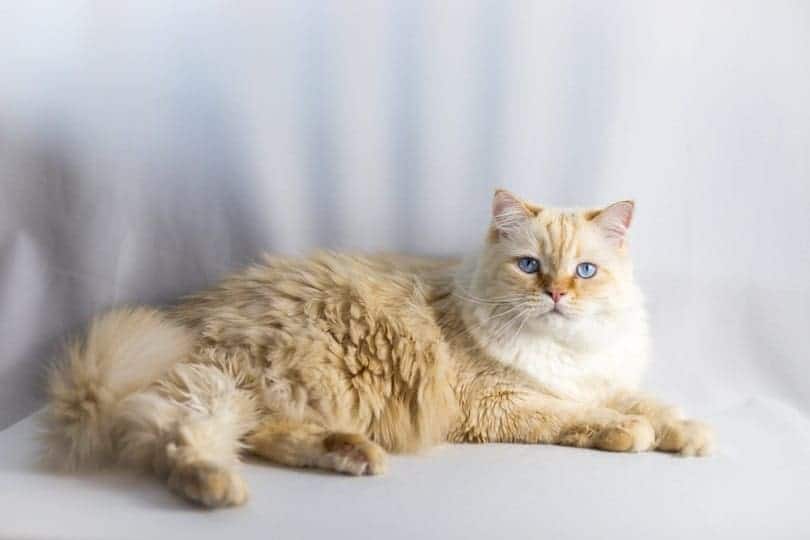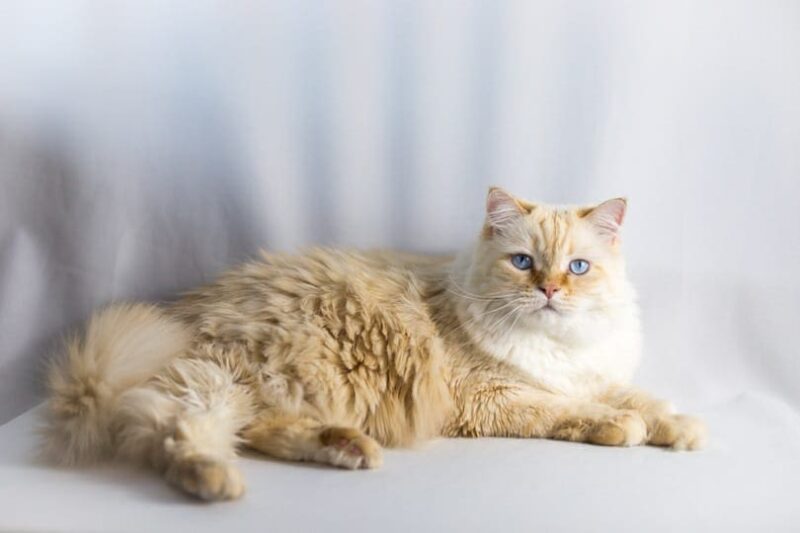Some cat lovers want a pet with the cutest looks, while others only care about their cat’s personality. But if you want the whole package, it’s hard to beat a Ragdoll. These cats are equally famous for their show-stopping features and their sweet temperaments. There’s way more than meets the eye with this breed—in fact, we can hardly wait to tell you our favorite Ragdoll cat facts!

The 11 Amazing Ragdoll Cat Facts
1. All Ragdolls Have Beautiful Blue Eyes
Ragdolls have a very specific look—long hair, a bicolor/pointed coat pattern, and big, beautiful blue eyes. Those eyes are one of the breed’s most distinctive features. Their color has an interesting origin, too—all Ragdoll cats are partially albino. Bonus fun fact—some people think all ragdoll cats are deaf. While pure white cats with blue eyes are sometimes deaf, Ragdoll cats get their blue eyes from a different gene that doesn’t hurt their hearing.
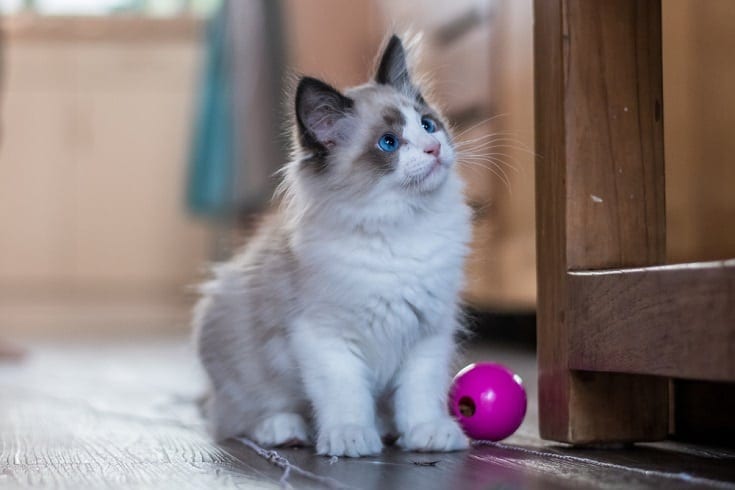
2. They’re Cuddly Lap-Lovers
If there’s one trait that Ragdolls are known for, it’s their love of the cuddle. These cats usually love to be held. They’ll snuggle up on your lap like a warm, furry blanket and keep you company all year round. Because of this, Ragdolls are sometimes recommended for people who live alone and need a companion animal.
3. Ragdoll Kittens Start Out White
Remember how Ragdolls are partially albino? This also has an effect on their fur. Ragdolls are born pure white! Starting at about a week old, parts of their coat will begin to darken to its final color. The result is a beautiful spotted pattern that’s darkest on your Ragdoll’s feet, face, and tail. These “points” can be any color or even tortoiseshell.
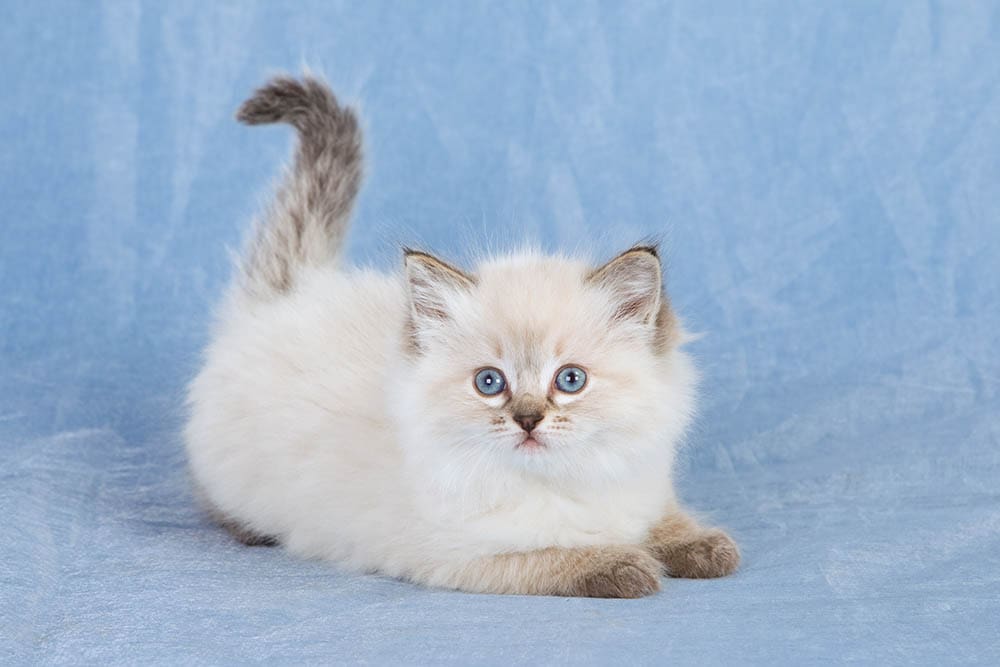
4. They’ve Got a Sweet, Outgoing Temperament
You might hear people say that Ragdolls have a “doggy” personality. It’s not hard to see why people think that—they’re way more outgoing than most cats. But Ragdolls also have a charm that’s all their own. Even though they’re very friendly, they don’t tend to be vocal. You’re much more likely to have a Ragdoll that’s sweet but quiet.
5. They’re Known for Being Floppy
The name Ragdoll has a special origin—their unique “Ragdoll flop.” Many Ragdolls go limp when they’re picked up, just like a doll. If you have a Ragdoll that does this, don’t worry—they aren’t in distress or playing dead. They just love to relax in your arms and feel totally safe and comfortable around you.
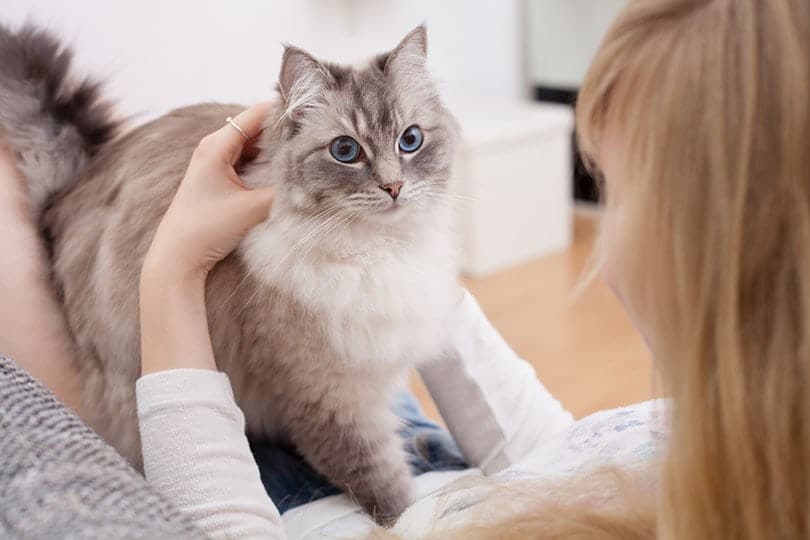
6. Taylor Swift Is a Ragdoll Owner (Seal Bicolor Benjamin Button)
Did you know that Taylor Swift is a cat lover? She’s the proud owner of three cats, including one Ragdoll. Benjamin Button is a Seal Bicolor Ragdoll cat that she adopted as a kitten in 2019. He’s the youngest of her cats—the other two, Meredith Grey and Olivia Benson, are Scottish Folds.
7. Ragdolls Call California Home
Ragdoll cats were first developed in the 1960s in Riverside, California. The original breeder, Ann Baker, loved her mixed-breed cat’s personality and “floppiness,” which served as the inspiration for the breed. Baker wasn’t a fan of traditional breed registries and started her own registry, the International Ragdoll Cat Association, in 1971. She also trademarked the name and required all other breeders to pay her a fee for every kitten they sold! It took until the mid-1990s for Ragdolls to be recognized by other organizations.
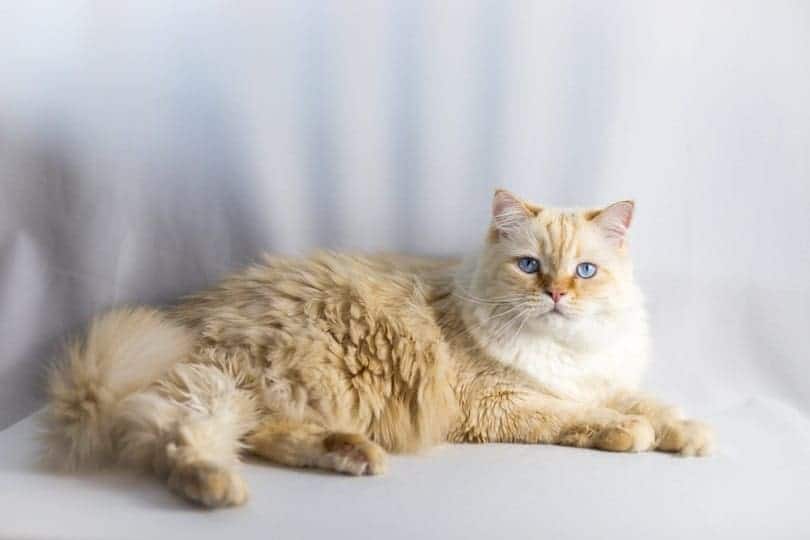
8. Ragdolls Have a “Breed Twin”
Ragdolls are unusual in many ways, but the breed isn’t unique. In fact, there’s another breed, the Ragamuffin, that’s almost just like it! The Ragamuffin was developed by breeders who were frustrated with Ann Baker’s policies and wanted a non-trademarked alternative. There is only one major difference between the two breeds in terms of looks or personality—while Ragdolls must have a specific coat pattern, Ragamuffins can come in any color or pattern.
9. They’re One of the Largest Cat Breeds
If you like your cats on the sturdy side, Ragdolls fit the bill. These cats are some of the heaviest and largest cats on average. Their long fur helps make them look even bigger! Only a few breeds, like the Maine Coon and Norwegian Forest Cat are bigger than a large Ragdoll. This solid frame does come with a higher risk of obesity, though. It’s important for owners to monitor their Ragdoll’s food intake and make sure they don’t overeat.
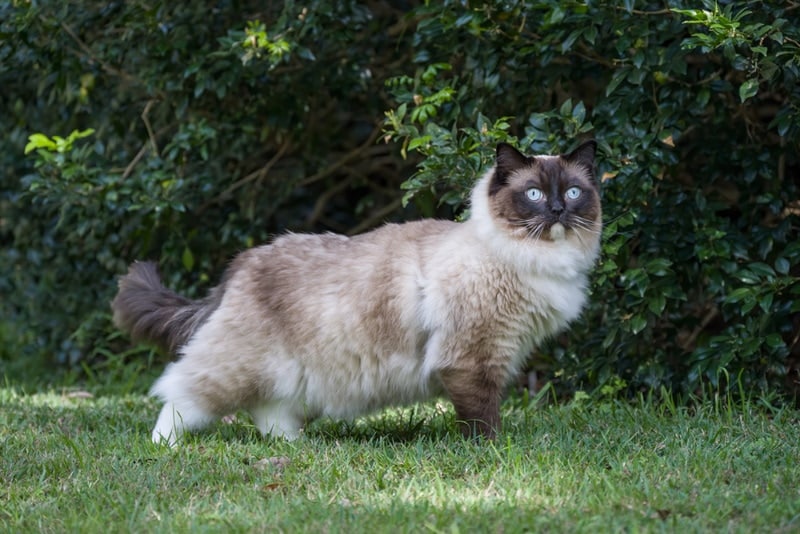
10. They Have Famously Fluffy Toe-Beans
Ragdolls are fluffy all over, and that includes their toes. In fact, Ragdolls are known for having tufts of fur in between each toe. Although most cats have eighteen toes, Ragdolls are occasionally polydactyls—that means they can have a few extra toes on each foot. If your cat has extra toes, don’t worry—it won’t negatively impact their health.
11. Ragdolls Live 15+ Years
Ragdolls have a mixed-breed, alley cat heritage that does wonders for their lifespan. They have an average lifespan of over 15 years, one of the longest of any cat breeds. With good vet care, Ragdolls often live into their early or mid-20s. They also have few serious health conditions that are endemic to the breed.
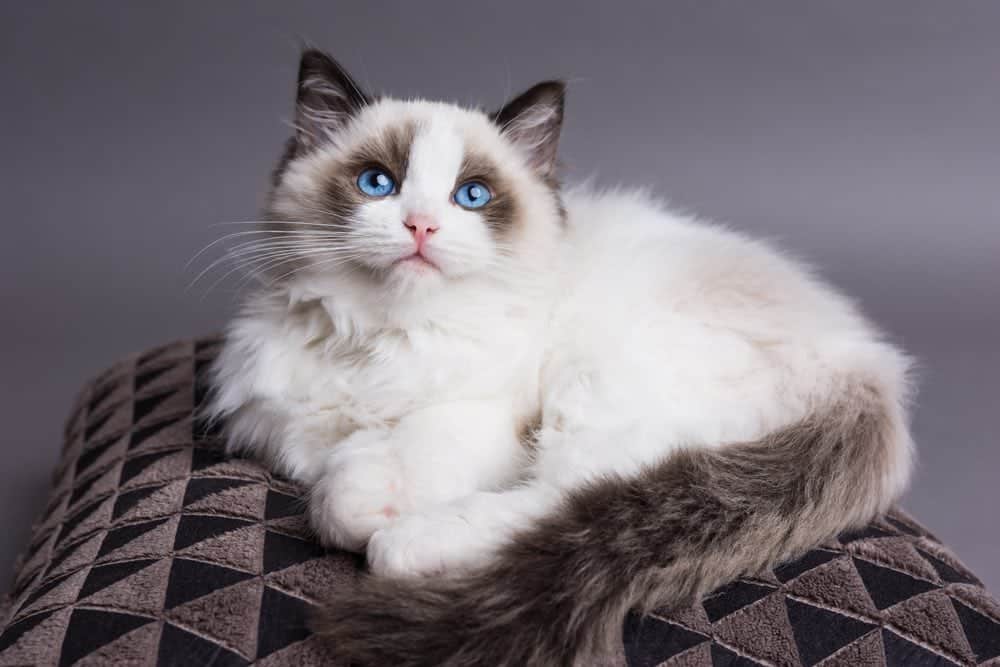

Conclusion
If there were a contest for underrated cat breeds, Ragdoll might be top of the list. No matter what you want in a cat, it’s hard to top this breed. A cool history, gorgeous looks, a cuddly personality, celebrity connections—there’s so much to love about Ragdolls!
See also:
Featured Image Credit: Carolyn R, Shutterstock
Contents
- The 11 Amazing Ragdoll Cat Facts
- 1. All Ragdolls Have Beautiful Blue Eyes
- 2. They’re Cuddly Lap-Lovers
- 3. Ragdoll Kittens Start Out White
- 4. They’ve Got a Sweet, Outgoing Temperament
- 5. They’re Known for Being Floppy
- 6. Taylor Swift Is a Ragdoll Owner (Seal Bicolor Benjamin Button)
- 7. Ragdolls Call California Home
- 8. Ragdolls Have a “Breed Twin”
- 9. They’re One of the Largest Cat Breeds
- 10. They Have Famously Fluffy Toe-Beans
- 11. Ragdolls Live 15+ Years
- Conclusion

